By Maia James, with research and recommendations by Michael Hopkins, PhD
Important CYA Statement
With this guide in particular, I feel like it’s SUPER important to stress that we aren’t doctors. (Well, Michael is actually a doctor—he has his PhD—just not THAT kind of doctor). Please consult with yours before taking our advice!
I’ve been trying to write this guide to help my pregnant or TTC readers choose the best organic prenatal vitamins for literally five years.
Every time I began researching, I quickly became intimidated by, well, the science of it all. Luckily, my best friend is a brilliant scientist, so he joined me in this effort and I am thrilled to finally present you with our Healthy Prenatal Vitamin Guide!
Best Overall Prenatal
Ritual Essential Prenatal
Are Prenatal Vitamins Even Necessary?
There is widespread consensus that the most essential prenatal nutrients are:
- Folate (for neural tube closure)
- Calcium (for bone development)
- Iron (for oxygenation of blood)
- Vitamin D (for healthy bones, teeth, skin, and vision)
In addition, there is emerging data to support a growing list of other nutrients that are also particularly important during gestation and should therefore be taken into account as well. These include choline, omega-3 fatty acids, and vitamin A.
You can learn more about all of these nutrients, and whether or not you may be deficient in some of them, in this post.
(You will of course find plenty of data to support the importance of ALL essential nutrients during pregnancy, but our goal with this guide was to identify the most important items to be added in supplement form to ensure proper fetal development.)

This will come as a surprise to no one, but the best way for all of us to receive our nutrients is from our food, period, and prenatal vitamins should not be viewed as a replacement for a healthy pregnancy diet.
Women should familiarize themselves with which foods are the best sources of the essential nutrients that are most important during pregnancy. You can do that here.
That said, the recommended daily intake for several vitamins and minerals is elevated for pregnant and lactating women, and even with a well-balanced, nutrient-rich diet, it can still be difficult for some women to ensure that they are meeting optimal levels.
For that reason, prenatal supplementation is recommended, and after writing this guide, I am on board with taking an organic prenatal supplement while trying to conceive and during pregnancy and lactation.
Vitamins While Breastfeeding
There are sometimes significant differences in nutritional guidelines between gestating and lactating women. For non-pregnant women, the RDI of iron, for instance, is 18 milligrams. For pregnant women, that goes up by 50% to 27 milligrams, and for lactating women it goes down by 50% to 9-10 milligrams (depending on age).These are really significant differences, so it’s worth familiarizing yourself with the recommended daily allowances for all of life’s stages. We love this chart (just scroll all the way down to the bottom of the page).
How to Choose the Best Organic Prenatal Vitamin
Okay, so you know you want to take a prenatal supplement. Now, how do you choose which one?
The first step is to assess your own eating habits to determine specific areas where a supplement might be particularly beneficial.
Next, you’ll want to consider the source material of the vitamin you’re going to buy, as well as the combination of nutrients in your supplement. (This is especially important because of known nutrient interactions that can influence the bio-availability of the ingredients in your prenatal.)
With these issues in mind, the next step is to know whether your prenatal has been tested by a third-party lab to determine whether the items in the ingredient label actually match the contents. Unfortunately, this is not something you can take for granted.
You also should be aware of fillers or other “sneaky stuff” in some supplements that may actually have negative impact on your or your baby’s health.
Lastly, it is important to know which nutrients actually pose toxicity risks if taken in doses that exceed recommended guidelines to avoid possible overdose.
Overwhelmed yet? Yeah, I was, too. This is where Michael stepped in and came up with specific criteria, questions to ask manufacturers, and an organized vetting process for prenatal supplements.
The Best More Affordable Prenatal
Deva
How We Came Up with the List of Best Organic Prenatal Vitamins
This review is mostly going to focus on only the best organic prenatal vitamins because I assume if you’re a reader of mind you aren’t going to want anything that might contain pesticide residue.
This knocks out about half the prenatals on the market right away.
You’ll see a long list of sources at the bottom of this post with links to peer-reviewed primary source data. We also checked recommendation guidelines from the American College of Obstetricians and Gynecologists (ACOG), the Mayo Clinic, and the Institutes of Medicine’s (IOM; aka Federal Guidelines) Recommended Dietary Allowance (RDA) and Tolerable Upper Intake Levels (UL) for safety.
There are some confusing aspects regarding recommendations from these various bodies. This can lead to variations in how the guidelines are interpreted and how much of each nutrient is recommended in a prenatal supplement. Once again, Michael’s scientific background was immensely helpful in making sense of the data and coming up with solid recommendations for you guys.
What to Look for in Organic Prenatal Vitamins
Here’s what we considered when reviewing popular organic prenatal vitamins:
1) Food-Based versus Synthetic Vitamins
Many essential nutrients can been isolated into their pure form in a laboratory. These isolates are commonly used in over-the-counter vitamins and supplements of all varieties.
Of course, food-based nutrients contain co-factors like phytonutrients that help your body absorb or utilize the vitamins, making them nutritionally
superior.
 Moreover, there is evidence that certain synthetic vitamins can actually lead to toxicity-related health concerns (synthetic calcium, vitamin E, and beta-carotene, for example).
Moreover, there is evidence that certain synthetic vitamins can actually lead to toxicity-related health concerns (synthetic calcium, vitamin E, and beta-carotene, for example).
The only downside to getting food-based nutrients in your supplement is that they tend to be bulkier, and so there is usually a smaller amount of any given nutrient in a food-based versus a synthetic supplement.
Bottom Line: While we aren’t convinced that synthetic nutrients are always inferior to natural, we looked favorably upon those brands using truly food-based nutrients in their formulas.
2) Inclusion of Lesser-Known (But Important) Nutrients
We mentioned seven nutrients that are critical for a healthy pregnancy (you can read more about all of them here), so obviously these are what you want to find in a prenatal vitamin.
Keep in mind, though, that some of these nutrients are really easy to get from food. Some are better absorbed when combined with other specific nutrients (more on this in a minute). We took all of this into account when reading the labels of some of the most popular organic prenatal vitamins on the market.
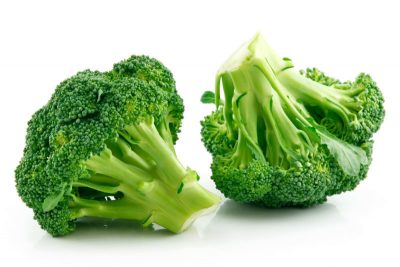
Broccoli is rich in choline.
For instance, choline, which supports healthy brain and spinal cord development, is actually very important during pregnancy but not found in many prenatals. (Gestational supplementation of choline has been linked with decreased risk of neural tube closure pathology and improved cognitive function in babies.)
Given the high rates of choline deficiency in the U.S., we gave bonus points to the brands of prenatals that included a food-based version of this nutrient.
Best Prenatal If You Have the MTHFR Gene Mutation
Women who carry this mutation have a harder time absorbing folate, especially in the form of folic acid. If you happen to know that you carry this mutation, look for a supplement containing methylated folate (L-methylfolate).
Ritual Essential Prenatal
 3) Vitamin D2 versus D3
3) Vitamin D2 versus D3
D2 (ergocalciferol) is plant-derived and D3 (cholecalciferol) is animal-derived.
Studies have shown that D3 supplementation is more effective at raising vitamin D blood levels. However, our skin produces D3 in the sun, so if you have regular access to sunshine, this is probably not such a big deal.
Bottom Line: If you are not vegetarian, you should try to find a supplement with D3 rather than D2. If you are vegetarian, try to make sure you get some sunshine, and don’t worry about the D2 in your vitamin being harmful.
4) Interactions Between Essential Nutrients
Many different factors influence bioavailability, which refers to how much of a given nutrient is actually absorbed and metabolized by our bodies.
Determining bioavailability is complicated. The source of the nutrient, how it is cooked or prepared, and the other foods or nutrients that are consumed at the same time all influence bioavailability.
We’ve already covered food-based supplements and why they are generally superior to synthetic (basically, co-factors like phytonutrients help you utilize vitamins).
Bottom Line: It’s impossible to predict the ways that different foods in different combinations will interact to affect the bioavailabilty of one nutrient versus another. This is just another reminder to get nutrients from food as much as you can!
There are a few combos of nutrients that deserve special mention.
Iron versus Calcium
Calcium inhibits the absorption of iron, and both are important essential nutrients for pregnant women. For that reason, many prenatal vitamins contain very little calcium.
The strategy we recommend is to find a prenatal supplement high in iron and try to avoid eating a calcium-rich meal (i.e. high in dairy) when you take the prenatal. Instead, eat calcium-rich foods (or take your calcium pill if you choose to supplement) a few hours apart from when you take your prenatal.
Vitamin C with Iron
The type of iron (non-heme) that you get from supplements and fortified foods should be taken with vitamin C when possible.
Vitamin C helps aid the absorption of non-heme iron, so another way to help combat anemia during gestation is to consume vitamin C rich foods with your prenatal. (You can read a bit more about iron below under “Possible Nutrient Toxicity Risks.”)
Vitamin D with Calcium
Vitamin D is essential for the absorption of calcium. You can help ensure that you’re getting enough calcium by consuming calcium-rich foods with foods high in Vitamin D, such as egg yolks and fortified milk.
If you are vegan or lactose intolerant you may consider taking a calcium supplement during pregnancy, and while there are several different forms/sources of calcium such as calcium carbonate and calcium citrate, it appears that all of these are absorbed equally by the body.
Keep in mind that the amount of calcium your body absorbs is inversely correlated with amount of calcium ingested (above 500 milligram). For instance, it’s better to take two 500 milligrams doses of calcium twice a day that one 1,000 milligram dose.
5) Enteric Coating
Stomach acid can affect bioavailability by breaking down nutrients in supplements before they arrive in the intestines where they can be absorbed.
Supplement tablets can be coated with enteric polymers to increase the bioavailability of nutrients. The coating won’t dissolve at the very low pH
levels found in the stomach, and instead dissolve once the pH becomes more neutral.
Unfortunately, enteric coating can be made from methacrylic acid copolymer, which is absolutely not “Good Stuff,” but it can also be made from a plant-derived cellulose coating derived from algae.
Bottom Line: If you have a sensitive stomach you may want to look for a prenatal with a plant-cellulose enteric coating.
6) Third-Party Testing
You’ll want to make sure that whatever organic prenatal vitamin you choose is third-party tested.
This is not the same as having “seal-of-approval” labels—even if these are from the NIH, or they proclaim that a supplement is “Non-GMO verified.”
True third-party testing means that a laboratory measures the actual contents of the formula against the label claim to see if they match.
For example, with regard to folate, the amount in the pill is often more than the claim on the label. This matters because folic acid has about 70% higher absorption rating than food-based folate or methylfolate. This means that a folic acid content of 800 micrograms is actually the equivalent 1360 micrograms of folate—not to mention whatever you’re getting from your diet.
Unfortunately, third-party testing is only useful if the specific formula ingredient list is still current. For example, we used LabDoor.com at the beginning of this investigation to start compiling and ranking various organic prenatal brands. Then we learned that the last LabDoor report was completed in 2016, and since then, several of the supplements have radically changed their formulations.
To further complicate matters, you really can’t trust a lot of information on websites that have ranked prenatals because often these websites are using outdated or misinformation.
For example, we found that Reviews.com has a lot of misinformation about which prenatals have been third-party tested. After doing some fact-checking, we found that several vitamins that were listed as having not been third-party tested actually were tested. Perhaps this is because the information on Reviews.com was outdated, or perhaps it was just wrong.
Either way, you can’t simply trust what you see posted online in the vast and complicated world of prenatal supplements!
Bottom Line: The best supplement choices will be those that have been third-party tested. Once you decide on a particular brand, you should double check to ensure that the formulation you are buying–and not some previous recipe–was tested.
Best Prenatal for Raw Foodists
Garden Of Life Vitamin Code Raw Prenatal
7) Inclusion of Questionable Ingredients (Sneaky Stuff)
Ideally, you’ll avoid any organic prenatal that contains food colorings, fillers, and additives.
According to LabDoor’s report (2016), four of twenty-two products contained at least one artificial coloring agent (Blue 2, Yellow 6, and/or Red 40).
Other “watchlist” or questionable ingredients identified by LabDoor are: cornstarch, polyethylene glycol, polyvinyl alcohol, sodium benzoate, sodium selenate, sucrose and corn syrup solids, carmine, caramel color, titanium dioxide, butylated hydroxytoluene, and benzoic acid.
One particularly sneaky move involves culturing cheap synthetic vitamins in yeast and then using the yeast culture as if it’s a “food-based” form.
It’s unclear if these yeast cultured vitamins are less effective than truly food-based ones, but either way, it’s not the type of transparency we like to see in our Good Stuff Brands! (Garden of Life does this, but we give them a nod as the only raw organic prenatal vitamin we could find.)
Best Prenatal for Those Keeping Kosher
Megafood Baby and Me 2
8) Possible Nutrient Toxicity Risks
It’s important to know that amount of a given nutrient that your body actually needs will also determine how much is absorbed. Fortunately, for most nutrients, any excess that is not needed by the body will be excreted in the urine.
But there’s a caveat, and to understand it you need to understand the difference between fat-soluble and water-soluble vitamins.
Just as the name implies, water-soluble vitamins dissolve in water, making them more readily available for use in various tissues and also easily excreted when there are excess amounts in the body.
Vitamins in the B-complex and vitamin C are water-soluble. Although it is possible that ingesting these vitamins in excessive amounts for prolonged periods of time can cause some gastrointestinal discomfort, there is very little real risk of “vitamin overdose” (hypervitaminosis).
Fat-soluble vitamins, on the other hand, are dissolved in lipids where they enter through the small intestine and are generally stored for later use.
Because they are stored in tissue, fat-soluble vitamins are not as easily excreted and prolonged excessive intake can lead to hypervitaminosis.
The fat-soluble vitamins include A, D, E, and K, but please note that it is basically impossible to overdose on any of these vitamins from your diet. Only ingesting excess vitamins in the form of supplements can pose any vitamin toxicity risks.
A few nutrients do merit mention when it comes to potential toxicity:
Preformed Vitamin A
Two forms of vitamin A are available in our diet: preformed vitamin A (retinol and retinyl ester) comes from animal sources, and provitamin A carotenoids (beta-carotene being the most important) are plant-derived.
Preformed vitamin A (retinol) can build up in the liver and become toxic at high doses. This condition is called hypervitaminosis A.
The important point here is that the toxic effects of vitamin A are ONLY associated with animal-derived and synthetic retinol, rather than plant- derived or synthetic beta-carotene. So, don’t worry about vitamin A toxicity from beta-carotene, even if it’s synthetic. Do worry about excessive vitamin A intake from animal sources or supplements with synthetic retinol.
Bottom Line: Readers of this website are very unlikely to be vitamin A deficient. Still, supplemental vitamin A in the form of food-derived beta-carotene can provide peace of mind without risking hypervitaminosis A. We looked for organic prenatal supplements that contain vitamin A in the form of food-based beta-carotene.
Synthetic Vitamin E
Naturally-occurring vitamin E consists of eight related compounds, the most important of which is alpha-tocopheryl, usually listed as d-alpha tocopheryl on a supplement label. (The synthetic isolate will begin with “dl” instead of “d.”)
Many websites reference the “problematic” and “potentially toxic” concerns about synthetic vitamin E. After doing some digging, we concluded that the only clear problem with synthetic vitamin E is that it is not absorbed well (less than 50%).
There does not appear to be evidence that excessive vitamin E poses any health risks when obtained through food, but supplemental vitamin E can have toxic effects at very high doses (like increased risk of hemorrhagic stroke and congenital heart defects in newborns).
Unlike other vitamins, this toxicity risk appears to hold true whether the dose is natural or synthetic.
Bottom Line: We looked for prenatal supplements that have the recommended daily allowance of vitamin E and not some crazy high percentage.
Iron
Iron needs double when pregnant, and supplementation is sometimes needed for vegetarian women.
Iron overdose is a significant concern for young children, but you’re more likely struggle with anemia during your pregnancy than with excessive iron intake. We looked for supplements that contained for around 18 milligrams of iron.
Folate/Folic Acid
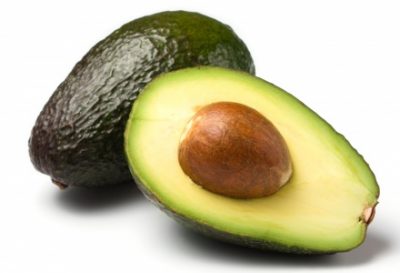
Avocados are a good source of folate.
In view of evidence linking folate intake with neural tube defects in the fetus, it is recommended that all women capable of becoming pregnant consume folate from supplements or fortified foods in addition to intake of food folate from a varied diet.
Despite several websites warning about the risks of excessive folate intake, according to the NIH factsheet, there is no upper limit for food-derived folate.
The upper limit of folic acid, which is synthetic folate, is 1,000 micrograms per day. (See the section on Third-Party Testing for more on the differences in bioavailability of folic acid versus folate).
Note that there IS a risk of excess folate masking a B12 deficiency. This can happen because the folate supplement will prevent the symptoms of anemia that are associated with deficiency of either B12 or folate; it will not prevent the progression of neurological damage that accompanies B12 deficiency.
Bottom Line: The best prenatal supplement will have food-derived folate, rather than folic acid. If a supplement does contain folic acid, there is no reason for it to ever be higher than 600 micrograms.
9) Omega Fatty Acids
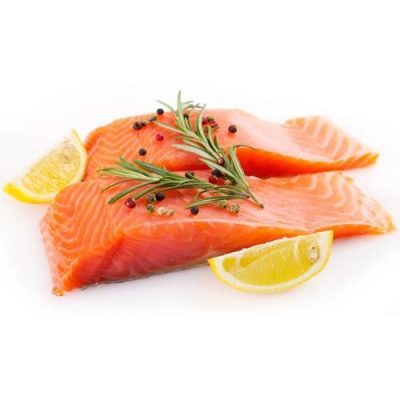
Pregnant women should aim for two servings of seafood per week.
You’ve probably heard a lot of buzz around how crucial omega-3s are for the optimal development of a fetus.
While omega-6 fatty acids are abundant and readily available, omega-3 fatty acids make up a much lower proportion of the modern American diet.
Because omega-3 and -6 fatty acids are essential nutrients (cannot be synthesized by the body), they must be consumed in the diet. This means they are transferred via the placenta from the mother to fetus.
There is a general consensus among medical professionals that pregnant women in the United States and Canada do not get enough omega-3 fatty acid, specifically DHA; both the Environmental Protection Agency and The ACOG recommend that pregnant women consume twelve ounces (340 grams) of seafood per week from low-mercury species.
The recommended two servings of marine food per week will provide an average intake per day of 100 to 250 milligrams total of omega-3 fatty acids. Of that, 50 to 100 milligrams will be of DHA. For women following this recommendation, the remaining 200 to 250 milligrams of recommended DHA will have to come in supplement form.
Frustratingly, it looks like the benefits of omega-3/DHA supplementation during pregnancy is really not that well supported. Yes, several studies have linked adequate intake of fish during pregnancy with a variety of benefits, but well-controlled, randomized trials looking at omega-3 supplementation (as opposed to just eating fish), have been largely disappointing. UPDATE: This brand new study suggests that omega-3 supplementation during pregnancy significantly reduces the risk of premature birth.
Bottom Line: We feel that in addition to eating low-mercury fish when pregnant, it makes sense to take a fish oil supplement.
Ranking the Organic Prenatal Vitamins
Once we decided what we wanted to find in prenatals, the next step was looking at the options available and categorizing them into Best, Good, Bad, or Sneaky Stuff.
In terms of which is the best vitamin for YOU, some of that depends on your lifestyle and circumstances—you’ll see that, for example, a few of them are vegan, one of them is raw, and one is significantly less expensive than the others.
All of them except Deva are some version of food-based, or at least isolated/synthetic vitamins mixed with an herbal or fruit/veggie blend to add in the phytochemicals and coenzymes, etc.
Naturelo and Ritual are special because they are vegan but use the good form of vitamin D (D3), which they get from lichen. (All the others get D3 from lanolin (derived from sheep’s wool) or some other animal source, or they use D2, which is veggie-derived but not as well absorbed by the body.)
The Best Stuff

Ritual Essential Prenatal
Ritual is our top pick because:
- It contains a vegan form of vitamin D3 rather than D2, which is not as well-absorbed.
- It uses folate rather than folic acid (and it’s methylated 4th generation folate, to boot!).
- It’s the most transparent of the brands we reviewed, with the best third-party testing.
- It’s one of the very few with an enteric coating to improve absorption of nutrients.
- It only requires swallowing a couple of pills a day.
- It’s fairly affordable at $30 a month.
- It’s the only prenatal vitamin on our list to contain (vegan) omega-3 oil, right there in one pill.
Note: Ritual does NOT include calcium, because they feel most women get this from their diets and it can impede the absorption of iron. If you have reason to suspect you’re deficient in calcium, talk to your doctor.
The only downside to Ritual is that it only contains 55 micrograms of choline. We hope this changes soon, but if you choose this brand and have reason to suspect you may be deficient, talk to your doctor about an additional choline supplement.
Naturelo Prenatal Multivitamin
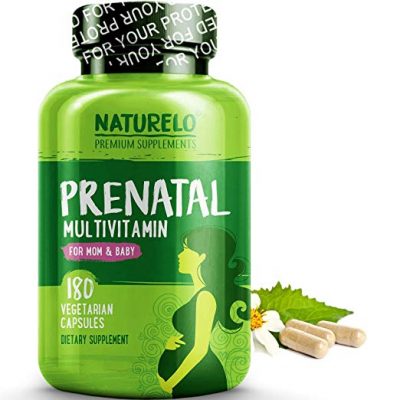
We like Naturelo’s Prenatal Multivitamin because:
1. It’s food-based, non-GMO, organic, soy-free, and gluten free.
2. It contains no preservatives, colors, or fillers.3. It uses methylated folate. (Note: while Naturelo exceeds the recommend folate dosage significantly (300%!), we don’t believe folate toxicity is a concern.)
4. Like Ritual, Naturelo offers a vegan D3 (rather than D2).
5. It contains some choline.
Naturelo Prenatal Multivitamin CONS (but not deal-breakers):
1. Calcium levels are low at only 27% RDA, which is probably not a big deal for most women.
2. Naturelo requires taking a pill three times a day.
3. Naturelo has limited information on third-party testing sources. They told Michael they’d send his questions to the manufacturer, and then they never got back to him.
Innate Response Baby & Me Multivitamin
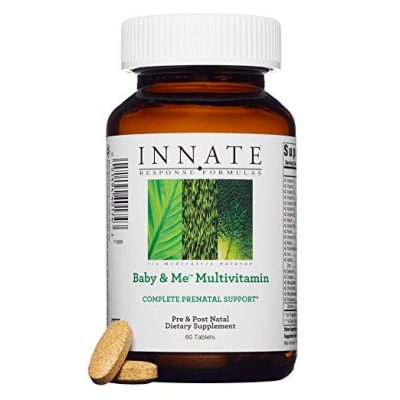
This one is made by MegaFoods, which was bought out by Nestle a few years ago. They do test for purity and accuracy, but the accuracy testing is done in-house.
Still, we’ve been satisfied by their answers and this they are transparent and committed to a superior prenatal. A major plus with this one is that it contains 300 milligrams of choline. It’s also one of the more affordable options.
The Good Stuff

New Chapter Perfect Prenatal
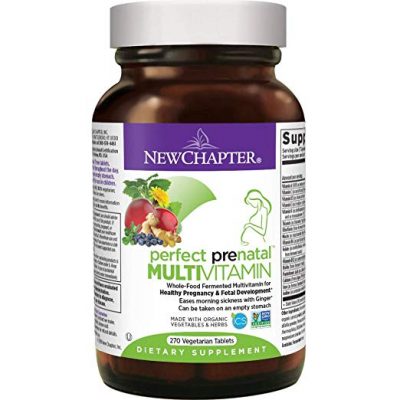 We like that New Chapter is organic and food-based and has NSF third-party testing.
We like that New Chapter is organic and food-based and has NSF third-party testing.
One redish flag was when Michael asked them about how they source the vitamins themselves (i.e. whether they are all food-derived of if they use synthetic vitamins as well). The answer: “Starting nutrients come from whatever source will stand up best to their proprietary fermentation process, could be synthetic or food-based isolates.” We think this is a slightly shady response.
On the other hand, their large-batch yeast fermentation process with all isolated vitamins together should, theoretically, make the vitamin more easily digested
It’s also worth noting that a LabDoor test found 60% higher than label claim for folate (960 versus 600 micrograms), and that folic acid was present instead of folate.
Other Cons with New Chapter:
- Having to take one tablet three times a day may be turn off for some women.
- This brand contains very little calcium (75 milligrams), but this is probably not a problem for most women.
- This is non-vegan due to lanolin and lac resin from beetle in coating (to make it more slippery). Obviously, this is only a problem for vegans.
Megafood Baby and Me 2
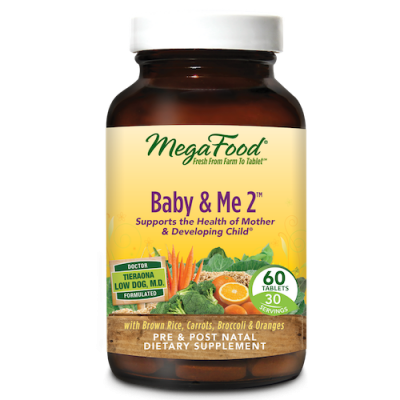
This popular brand has a lot going for it:
- It’s organic, food-based, and kosher.
- It’s one of very few prenatals to have a significant level of choline (300 milligrams per day).
- It also has the recommended levels of methylated folate, so it’s suitable for those with MTHFR gene-mutation,
- It only requires taking two pills a day.
- MegaFood uses a proprietary method to isolate individual nutrients from real foods, and they then re-combine the isolated vitamins with a blend of real herbs/fruits/veggies to provide the co-factors.
MegaFood Baby & Me 2 CONS (but not Deal-Breakers):
These prenatal contains no calcium or magnesium, but this is probably not a problem for most women. (Note that the original MegaFood Baby & Me includes a low dose of calcium and magnesium.) The bigger issue is that MegaFood does not have any proof of third-party testing.

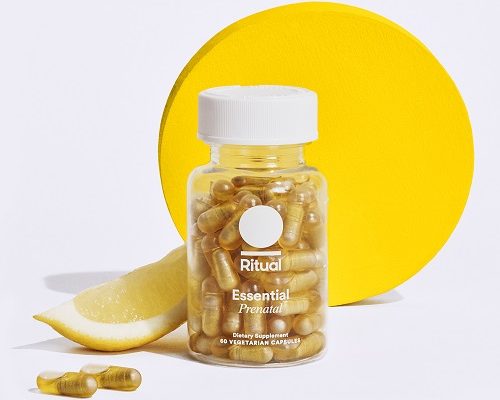
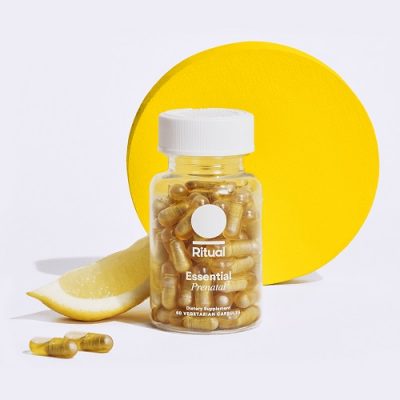

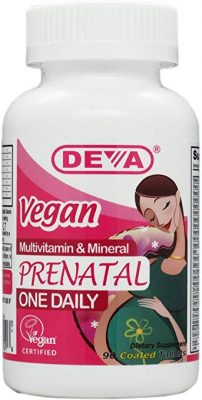
 3) Vitamin D2 versus D3
3) Vitamin D2 versus D3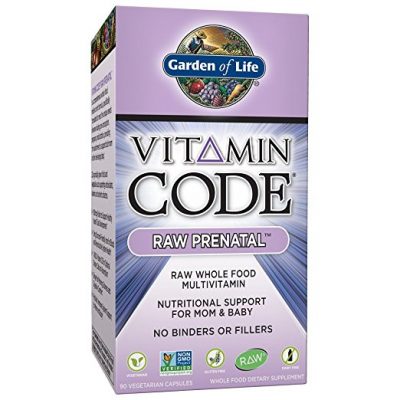
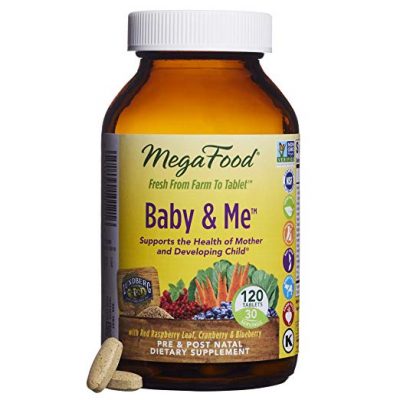
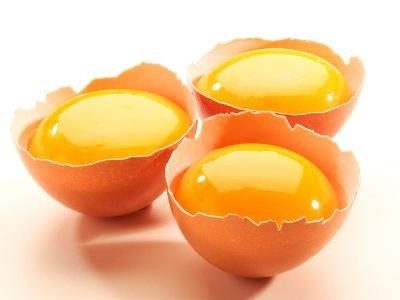


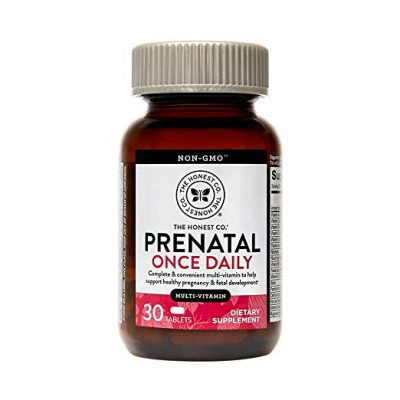 The big thing to know about Honest’s Prenatal is that it’s only partially food-based. On the other hand, it’s organic, gluten-free, and vegetarian
The big thing to know about Honest’s Prenatal is that it’s only partially food-based. On the other hand, it’s organic, gluten-free, and vegetarian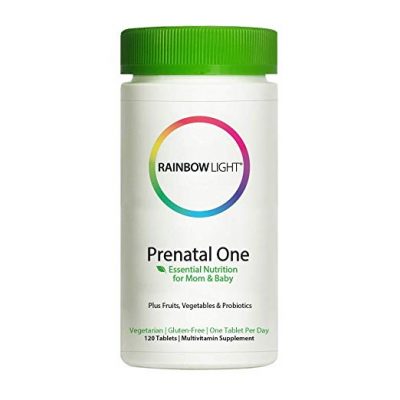

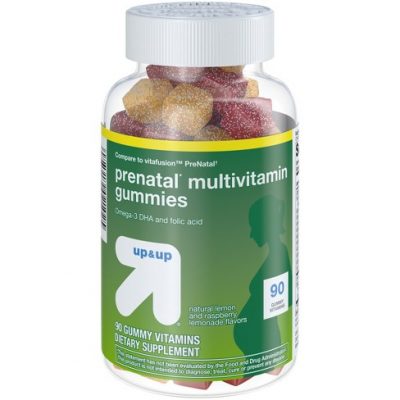

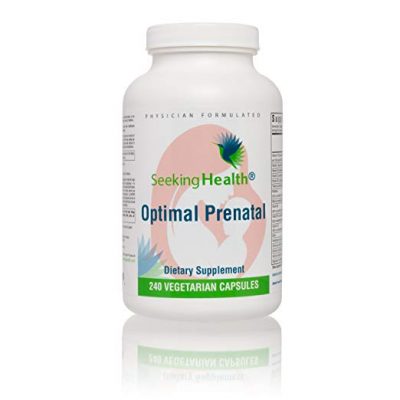 A lot of you asked about this brand, but it doesn’t not contain iron, contains a potentially dangerous form of vitamin A (retintyl palmitate), and the dosages grossly exceed RDA for almost everything.
A lot of you asked about this brand, but it doesn’t not contain iron, contains a potentially dangerous form of vitamin A (retintyl palmitate), and the dosages grossly exceed RDA for almost everything.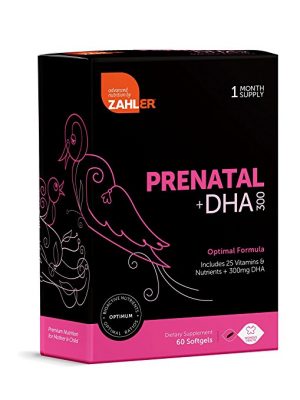
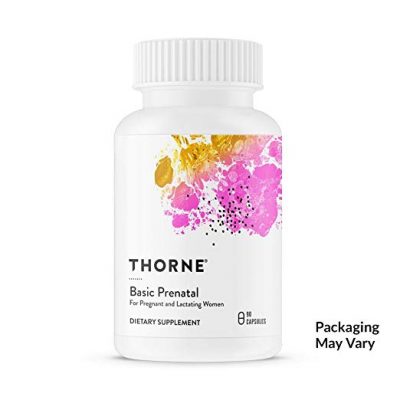




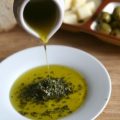


Lindsay says
I personally like/ trust taking Pure Synergy’s Prenatal. Have you ever looked into this one? Organic, whole food based.
Ashley says
Halfway through my pregnancy and have been taking Garden of Life Vitamin Code Raw Food Prenatal and saw that it’s only ranked as Okay Stuff – hoping this is ok 🙁
Mellissa says
I had a prenatal visit today and showed my doctor the New Chapter prenatals I had been (inconsistently) taking. She thought the Vitamin A content was a bit high, and also noted their horse pill size (hence me not being consistent). She gave me samples of a gummy prenatal called Vitafol and gave me a prescription for it. Of course, my insurance doesn’t cover it and it’s $440, so I did not fill it. I love your lists, and this one was so timely. Just wondering, if you had to pick the best of the worst/gummies which would it be?
MLK says
One of the best posts I have seen on prenatals, thanks to Michael for digging up the research!
Tierney Johnson says
WOOT! Thanks for this, when your guides release a recommendation, I am all over it. I share your guides with so many people!
Kristina Maldonado says
What about MyKind Organics Prenatal Vitamin? I was excited to see a gummy vitamin that was organic and had Folate instead of Folic Acid. Is there anything questionable about it?
Brittany Wilson says
I take this one as well and didn’t see it on the list and was curious
if they researched it. ???
Allison says
Have you looked at Prenatal with DHA by Orthomolecular? My functional medicine doctor did a lot of research and recommended this for people who have the gene mutation MTHFR.
Heather says
Have you looked at Best Nest Wellness? Its made with organic fruits and vegetables, probiotics, digestive enzymes and whole food based vitamins and minerals. Its gluten, soy free and one a day. It has the correct Vit A, E and methylfolate. Id love to know your opinion on this brand.
Rupali Monga says
Thanks for this list. I have the MTHFR mutation and got a prescription from a genetic/MTHFR specialist for Klaire labs prenatal & nursing formula. Here is the link to the vitamin list: https://klaire.com/prn-prenatal-nursing-formula. What are your thoughts on this? I already had my baby and had placenta insufficiency due to blood clots in my placenta and through that I discovered that I have blood clotting genetic disorder including MTHFR mutation. So doing as much research as I can now on prenatal for next baby. Thanks!
Kay says
Hello Maia,
Do you also recommend “Essential for Women” as a multivitamin, for those of us who are not pregnant, (https://ritual.com/products/essential-for-women-multivitamin) based on your prenatal guide: https://gimmethegoodstuff.org/safe-product-guides/organic-prenatal-vitamins/?
Let us know and thank you for all your good work. It’s appreciated.
Maia James says
Yes, I love this one!
Megan says
What about NutriGold?
Megan says
Also, I don’t see New Chapter’s Prenatal when in the NSF-certified products database. There are other products listed for the brand, but not the prenatal. Can you look back into your sources that say it is NSF certified?
I am trying to get a handle on the different certifications out there. What do you know about the C.L.E.A.N. certification? I have come across that one on a supplement as well, but many don’t have it. Thanks!
Stephanie says
This is such a great resource! I will be switching from Thorne to a better prenatal right away! Any chance you can do a non-prenatal multi-vitamin guide next? I’d love to make sure my husband is taking a quality multi! Thanks!
Maia James says
Ha, sure! We haven’t done a full guide, but we did a post here: https://gimmethegoodstuff.org/best-multivitamins/
Megan says
Is the Boron in the RITUAL natural or synthesized? It appears to be synthesized from what I have been able to dig up, but I can’t confirm. Are there other synthesized nutrients as well (in addition to the choline and possibly boron)? I was excited to see this new “all natural” prenatal, but now I am not so sure about the use of multiple synthetic ingredients. Thanks again for all of your research on this. I know how time consuming it can be 🙂
Maia James says
Yes, Ritual uses some synthesized nutrients, but they’ve done careful research about which might actually be better in their synthesized form.
Daria says
Very informative! I’d like to share some helpful applications for future mums with which you can communicate with other future parents, track all the necessary measurements, keep your health under control, get daily info and so much more: https://freeappsforme.com/best-pregnancy-apps/
Natalie says
I’m wondering what you’d recommend for someone who has to avoid iron supplements? (I have hereditary hemochromatosis which causes my body to absorb & store excess iron.)
Maia James says
Hi Natalie-
I haven’t had time to look into this deeply, but at quick glance this one looks like a great choice for someone who can’t have iron:
https://amzn.to/2Vl7LSc
Sonia says
Hey! I loved this article and switched to the Ritual pre-natal. Unfortunately I need to provide some really vital feedback. They only send you enough for 30 days and you cannot buy them in a store (shipment service only). They send you and email saying they will get there with a day or so (which was scary of course but I trusted their service) but to my dismay I am supposed to receive them today and it shows on the USPS site that they only brought them to the USPS facility THIS MORNING. As you can imagine I am a crazy pregnant lady and I threw a huge fit (I have yet to hear back from them). But now on top of that stress I need to go buy new vitamins and it’s a all big thing. Basically, who cares how great a vitamin if their shipping is shitty and you don’t end up being able to take them because they didn’t arrive? This experience alone is making me cancel this damn subscription and going back to one I can buy in a store to eliminate any uncertainty.
Sonia says
UPDATE: After several phone calls and them telling me that it would arrive on time (it didn’t) they sent me a free bottle so that this would not be an issue again. I appreciate them sending me another bottle as a buffer for sure.
kelly says
Yikes, no even a word on Nature’s Made prenatal. Im worried now since i took that on my first pregnancy. And even though, my diet was pretty good, Im so frustrated i didnt do my research beforehand as there could be some dangers with certain synthetic forms, like folic acid! Thanks for this list, you are awesome!
Sarah says
My son is 4 years old now and I am expecting my second baby. I was looking for information on prenatal vitamins and came across your post & https://www.whattoexpect.com/getting-pregnant/health-and-wellness/foods-to-enjoy/prenatal-vitamins.aspx. The ideas on prenatal vitamins are so much in detail and they are so useful. During my first pregnancy though my diet was good I am upset that I didn’t do my research beforehand on what prenatal vitamins should I take because of some dangers with certain synthetic forms. But this time I am happy because I got to know so much from your blog and I can choose from a variety of products depending upon my need for the vitamins. Very informative I loved this.
Annmarie Zuluaga Yafrate says
Hi Maia -What are your thoughts on the Best Nest prenatal? I’m struggling with GI issues (constipation mostly) and Ritual prenatal isn’t working for me because of it. Trying to find an alternative prenatal or just a good multi-vitamin to take along with a separate folate. Thanks!
Pershin Moradi says
Hi some of the vitamins you posted in the good stuff like raw vitamin code have stearates, these are known cancer causing agents. These are anti-caking agents. You may want to look into this. Also, I found this prenatal and it seems pretty impressive, I would be interested in your thoughts, nutrigold prenatal. Thanks for this website, it’s been very informative and helpful 🙂
Natalie says
Can you please confirm where you received info regarding stearates in GOL Raw vitamin line? Our whole family uses the Raw line (men’s, women’s, family/kids, and prenatal). I personally called to check up on this and the response that I received is that it’s a chelated form derived from whole food sources and not classified as a citrate or malate form of magnesium. I tend to believe this as they do contain the correct forms/sources of other vitamins/minerals to include Folate, D3, B12, Iodine etc. We’ve been very happy with the RAW vitamins line for several years now, however, I do like to stay informed. If you can please provide any concrete info regarding your claims I’d greatly appreciate it, thanks!
Maia James says
Hi there-Thanks for putting Nutrigold on our radar! We will definitely look into this brand when we update the guide. As for the stearates, we did look into those and I know they are controversial. Ultimately, we sided with Dr. Ax on this (I’m a big fan of his), who says;
“The bottom line is this: Like most fillers and bulk additives…stearate isn’t healthy in high doses, but it’s definitely not as harmful to consume as some make it out to be because it’s typically only available in minuscule doses.”
Chase says
I’ve worked in the supplement industry 10 years. While Maia and Michael did their best with this guide it isn’t accurate on many levels. I’ve emailed them 3 times addressing many of the errors but never heard back. One example, claiming the Garden of Life Prenatal is raw is not even remotely accurate. That is all marketing on GOLs part. I have no dog in this fight other than fighting misinformation on the topic. The vitamin category in the supplement space is shady. All of the ‘whole food’ prenatals or vitamins are spiked with synthetic vitamins but presented as if they are extracted from whole foods. Mega Foods, New Chapter and a few others have updated their labels and listed synthetics so it is more accurate but even New Chapter’s wording on the supplement facts panel makes it sound like the nutrients are from the fermentation broth. Yes, a small amount but most all of it is from synthetics. They did this because they got bought out by the big boys (see second Woodstock Vitamins link below)! One big hold out is Purenatal (and the rest of their vitamins) by The Synergy Company. Even with their new rebranding they chose to continue to hide they ferment whole foods with synthetics. An outsider would read the label and think it’s all extracted from food. Not so! They are privately held and are willing to run the risk and take advantage of weak rules on supplement labeling. There isn’t a truly whole food prenatal on the market. Most synthetic vitamins are from China or India. Very few use sources from elsewhere because of price and market dominance by those two countries. As of a couple years ago Purenatal was sourcing non-Chinese synthetics but I’m not sure if that has changed. If you want more details on different types of vitamins and who owns who, check out these Woodstock Vitamins articles on the topic (https://www.woodstockvitamins.com/blogs/learn/the-garden-of-lies) (https://www.woodstockvitamins.com/blogs/learn/the-mega-corporations-that-own-your-supplement-brand). Neal is an insider with in-depth knowledge on the topic and something Maia and Michael will never get to unfortunately because they are not from the industry. It’s too complicated for outsiders, sadly.
For anyone that needs some real guidance on pregnancy nutrition then reach out to Josh Boughton. He has more knowledge than anyone I know in the industry. He is an herbalist, industry consultant for 15+ years, honest, smart and funny. He truly cares about the industry and being honest about what he recommends and sells. The quality checks that he goes through to ensure what he sells is truly a quality product is second to none.
https://www.joshboughton.com/pregnancy
Again, I have no financial relationship with Josh or Neal. They are some of the few telling the truth and it is enlightening, frustrating and refreshing to learn the truth. I’m simply tired of blog posts such as this getting it so wrong, not editing the content based on feedback and then inadvertently misleading their readers. I’m a fan of what Maia is doing and use and respect her guides but not her supplement guides. -Chase
Maia James says
Hi Chase-Thanks for taking the time to write in, and I’m sorry that we’ve not had time to respond to your emails personally (we don’t have the capacity to respond to individual emails anymore, unfortunately). You’ll notice that we did actually explain the following in the post: “One particularly sneaky move involves culturing cheap synthetic vitamins in yeast and then using the yeast culture as if it’s a “food-based” form.
It’s unclear if these yeast cultured vitamins are less effective than truly food-based ones, but either way, it’s not the type of transparency we like to see in our Good Stuff Brands! (Garden of Life does this, but we give them a nod as the only raw organic prenatal vitamin we could find.)”
I will definitely reach out to Josh to learn more.
Thanks again!
-Maia
chase says
Maia,
Thanks for finally replying. I did read that part of your post and appreciate you mentioning it. That line needs to be developed more because it is a critical piece of your guide and transparency in this space for your readers. GOL or anyone else is not producing a “raw” prenatal. That is impossible unless someone is taking a truly whole food prenatal that contains raw natural ingredients and even then the term “raw” isn’t regulated unless one looks to the RAW and CLEAN standards (https://cleanfoodcertified.org). The issue of country of origin of the vitamins should also weigh heavily in your rankings of a brand. All Chinese vitamins should be a mark down for a brand. Consumers looking to support a natural brand like the ones mentioned would likely want to know if that brand is secretly support Chinese vitamin companies that are polluting the environment. It was so bad the Chinese government finally did something about it recently and prices for all vitamins shot up.
Safiya Soderstrom says
I took Garden of Life once a day prenatals. It seemed pretty wholesome, and I was trying to take the best thing I could find prior to and through my pregnancy. I was hoping to see it on here and I was nervous that it would be just okay, or even sneaky. Just curious as to where they stand?
Piper says
What about Garden of Life My Kind certified organic Wholefood, prenatal once daily?
Joanna says
Awesome article, thanks for all the foot work you have done in research. Can I ask, have you researched My Kind Organics Garden of Life prenatal vitamin? They claim that it is food based and has folate instead of folic acid on the label and is only $20 a bottle. Do you think it is legit?
Verzul says
Wow, thank you so much for all of your efforts! I wanted to add to your list Intramax. It is the best multivitamin out there that I have found and wanted you to compare it with your friend. I found a dosing protocol for pregnancy which is different than those who are just taking them for regular health maintenance reasons. It is not meant as a prenatal vitamin but a regular multivitamin so it has trace amounts of choline, both calcium and iron, but it has so many other vitamins and minerals. I think it could be used as a prenatal vitamin along with a choline supplement. Let me know what you think and/or find out or know about it. Thanks!
Yelena says
Hi Maia,
How do you feel about Klaire Labs Prenatal vitamins?
Tara says
Any thoughts on Garden of Life MyKind Organics Prenatal Multi?
Thanks!
Cara says
This article is hugely helpful but I’m still feeling quite lost about Folate. This recommends Ritual but it seems to me like Ritual has WAY more Folate than is recommended – especially if we are only suppose to get 600 mcg DFE. I’m having a hard time finding a prenatal that is free of heavy metals but also doesn’t have a very high level of folate.
This site’s testing has me nervous about many of the major vitamins.
https://www.puremarket.com/search/?refinementList%5Btaxonomies_hierarchical.product_cat.lvl1%5D%5B0%5D=Health%20%26%20Fitness%20%3E%20Prenatal%20Vitamins
Anuradha says
Hi Maia, thanks for putting together useful information, can i ask your feedback on Vitamin IQ prenatal and Naturelo Prenatal (i was able to find both of brands certificate of authenticity (COA) lab results online).
Tera says
Hi Maia,
I read your safe product guides regularly and I love them! Thank you for helping me make a change to our household products and a healthier environment for my family. I am currently expecting our third and this is the first time I am using a “prenatal vitamin” for pregnancy, with my first two I actually took Juice Plus (3 of each of fruit and vegetable blends per day as opposed to the standard 2) plus an omega3 supplement (cod liver oil) and of course extra vitamins from my diet especially ones high in folate. I’m curious as to your opinion about using juice plus instead of a prenatal?
Katie says
Yay! Thank you. I love that you love Ritual! I’ve been taking it for 6 months now. Am a bit concerned about choline being low now, I didn’t consider that. Do you have a choline supplement you’d recommend? How much choline is regularly needed?
Jas says
I received my ritual Prenatal and been taking it. Then I realized that FOLATE in my bottle is 1700 MCG DFE (1000 mcg). Is that too high? They recently changed it to 1000 MCG DFE which is lower dose than in their Essential for Women that has 1020 MCG DFE (600 mcg). That means their Folate in new formulation is only a little over 400 mcg, which I worry if too small a dose for pregnant women. Most prenatal vitamins contain 600 mcg of Folate/folic acid. Also frustrating is that they are subscription based, and delivery sucks. I miss days of taking prenatal because the delivery is not on time. What makes it worse is that they are out of stock now.
Katie says
Hi, I asked them about this and this is their response: Thanks for reaching out! The Recommended Dietary Intake (RDI) for folate in pregnancy is 600 mcg DFE. The RDI is the daily intake level of a nutrient that is considered to be sufficient to meet the requirements of 97–98% of healthy individuals in the United States. The US Preventative Services Task Force (USPSTF) recommends a daily supplement of 400–800 mcg folic acid for all women who are planning or capable of pregnancy.” (400-800 mcg of folic acid is the equivalent of about 667 to 1333 mcg DFE—making our dose of 1000 mcg DFE right in the middle.) Our previous dosage of folate is considered safe, but we reduced it because new research suggests higher dosages does not necessarily provide additional benefits.
caitlin says
innate shows a D grade on puremarket.com. is that a reputable site?
VegaVites says
These are some great tips on prenatal vitamin guide that you have discussed here. I really loved it and thank you very much for sharing this with us. You have a great visualization and you have really presented this content in a really good manner.
Nikki says
You say this about Thorne-
“While this brand is highly ranked by several bloggers, it’s not food-based and appears to use chelated metals for most of its minerals.”
Is this not true for Ritual??
Thanks!!
Jasmine says
Hello Maia,
I bought MegaFood after reading your Prenatal reviews. I bought Mega Baby & Me 2. I thought MegaFood is the best that would fit my Pregnancy prenatal needs. However, I came across this on Amazon. One reviewer said that “S. cerevisiae is beer/bread yeast and It does NOT make D3 (cholecalciferol) naturally. It makes D2 (ergocalciferol), which is similar, but definitely not the same. In theory, it is possible to engineer yeast to make D3, but definitely not without the final organism being GM.”
What do you think about it? Just want to know your thoughts because MegaFood says they are organic and non-GMO. And I also do not now if I should worry about it being D2 though final product is D3.
Kate says
Hello Maia,
Do you recommend any multivitamins brands for children? As the kids are picky eaters sometimes I’m worried if they’re getting all the vitamins
Ayesha says
Hey,
I really like your website. I appreciate your hard work. I want to know how is actif brand prenatal, it is vegetarian and organic.
Thankyou
Coree Mahoney says
Thoughts on Full Circle prenatal and Ancient Nutrition prenatal?
KM101213 says
The MTHFR mutation is much more than just not being able to process synthetic folic acid. Certain synthetic B vitamins, in general, cannot be processed either. There is a rabbit hole of information about MTHFR, it is a lot to understand and I think it would actually be super helpful to have a link to more info or even a disclaimer about not knowing all the ins and outs of it. That being said, I was so excited to see some awareness about the MTHFR in a supplement guide! Thanks!